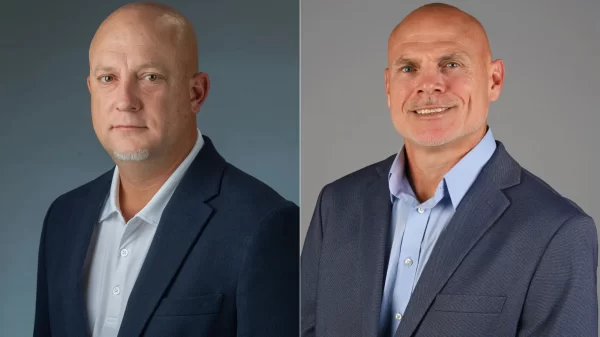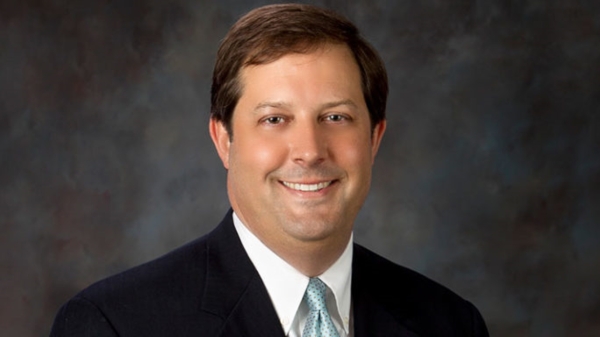|
Getting your Trinity Audio player ready...
|
We’re all familiar with that old industry slogan, “If you got it, a truck brought it.”
We often see those words on buttons, websites, billboards, stickers, and all sorts of other merch and marketing paraphernalia.
The phrase has an interesting historical context for our industry, too. A slightly different version is often attributed to former Teamsters President Jimmy Hoffa, who once told a colleague, “If you got it, a truck driver brought it to you. Don’t ever forget that. That’s the whole secret to what we do.”
Hoffa, a controversial figure to be sure, absolutely nailed it with his succinct assessment of trucking. That “you got it” part covers food, clothing, medicine, building materials, fuel for home and industry, and just about anything else you can think of. And the focus on the “truck driver” as opposed to the “truck” is especially impactful.
The core sentiment about the essentiality of trucking is intentional and direct, and more recently, nothing spotlighted the trucking industry’s role in the economy and its ability to deliver a better quality of life than the Covid-19 pandemic. When the world’s economy shut down, truckers stepped up, and thank goodness the world noticed!
Trucking’s role in the Covid-19 recovery efforts demonstrated our value in keeping our country well-stocked with the essential items we all need to feed and clothe our families. As it’s been said, “Crisis or Christmas, truckers deliver the goods.” The #thankAtrucker hashtag was aptly coined during this time, and we should never let it fade.
And while the tagline “I Love Trucks” remains one of my favorites, I feel like that slogan doesn’t tell the entire story. When I consider the many amazing people who comprise trucking’s talented and diverse workforce, I believe “I Love Truckers” is a much more appropriate mantra for our industry. As much as I love trucks, I love truckers much more.
You see, trucks may be the tools that bring “The Good Stuff,” but it’s the 3.5 million American professional drivers who actually deliver it.
The women and men who work in the trucking industry are the ones who make it special, unique, and essential. Over the years, I have been blessed to know many of these amazing professionals. Pros like Alejandro, who drives from my company. He grew up watching his uncle drive trucks for years. Alejandro says he wanted to drive a truck because he saw it as a way he could help people. “There’s a need for us,” he says.
Then, there’s Felicia, another professional driver for our company, who is in her mid- 20s, owns her own truck and is providing for her family by doing something she loves — something that matters, and something that serves her community.
She and Alejandro are the real faces of Alabama Trucking, and my goal as the leader of the state’s trucking association is to ensure that everyone can picture a dedicated professional like Alejandro and Felicia when they think of trucking.
Economically, Alabama’s trucking industry is the key connector for the major industries in the state such as manufacturing, forestry, agriculture, and construction. As those industries grow, the professionals in trucking rise to meet the demand, keep the supply chain moving and transport these goods safely and efficiently.
Yet, with all these positive impacts, there are still forces that seek to objectify the trucking industry, create fear, and overshadow the courageous work of the 110,000 trucking professionals in Alabama who keep every community and every business in the state supplied.
Trucking has become the target of some, not all, plaintiff’s trial lawyers that view the industry as a cash cow and whose nearly $2 billion per year in advertising seek to objectify the trucking industry as bad and paint all “trucks” in a negative light.
The justice system exists to provide justice for injured parties. Lawsuits are a reality and many times necessary to compensate injured parties or adjudicate disputes between two parties. However, it does not exist as a means for exploitation and profiteering.
And whether you realize it or not, everyone feels the impact of these attacks. Because transportation is essential for almost every business sector, every consumer experiences the cost increases caused by an overly litigious environment, the threat of nuclear verdicts, and never-ending frivolous lawsuits which have driven up insurance costs for trucking companies to crisis levels.
It has had a profound impact on small companies and owner-operators. Equally as detrimental, the negative advertising and frivolous lawsuits overshadow the powerful work of the 3.5 million professionals who are serving their country by moving more than 80% of all goods which benefits all people in our country.
What if even a portion of that $2 billion in negative advertising was devoted to telling these true stories of the individuals that we all depend on every day to live our lives?
Professional drivers and the other professionals in our industry are good people. In addition to doing their jobs, they go above and beyond to do things like a lookout for individuals caught in the cycle of human trafficking and delivering relief goods to any natural disaster that occurs.
Simply put, they are heroes in the truest sense.





















































